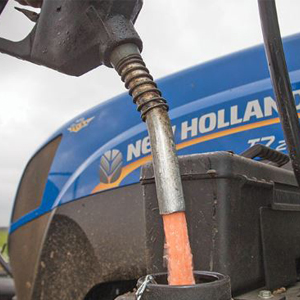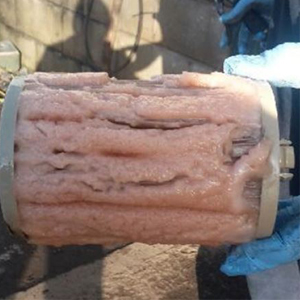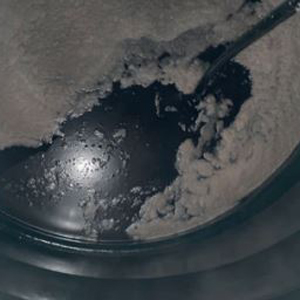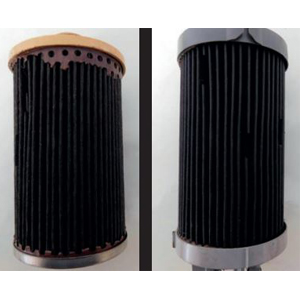You may remember in the autumn of 2019 there was a lot of talk about the new higher levels of FAME in white and red diesel. Users of agricultural machinery will certainly remember the repercussions of the new higher biofuel levels, which caused numerous problems with blocked filters and increased water contamination.
Towards the spring of 2020 the number of customers reporting problems as a result of FAME content in fuel started to reduce again. Many are now able to continue working and using equipment as they would have before the problems of autumn 2019, a relief to those in the agricultural industry who rely on their machinery. However, the issue of FAME content in white and red diesel is an on-going problem and isn’t one which is likely to disappear in the near future. Trade associations and industry bodies are still lobbying government and continue to work with refineries to find a long-term solution to the problem.
Before the new RTFO regulations small quantities of FAME were present in Gas Oil:
It is not always true that Gas Oil and Derv is 100% “FAME free”. Traditionally it has contained a minimal amount of biofuel, on average this has been up-to-2%. As this is a very small quantity, many customers would not have even been aware that there was a proportion of biofuel in their diesel and it would not normally cause problems like we saw in the autumn of 2019. These problems were likely a result of an increase of the biofuel content to up-to-7%.
In 2018 the Government set out new amendments to the RTFO regulations (Renewable Transport Fuel Obligation) in a bid to reduce the effects of greenhouse gases by encouraging the use of safer biofuels. These changes included the increase of bio-fuel also known as FAME in white and red diesel to up-to-12.4% by 2032. FAME content was due to be increased in stages under the new guidance, with the first increase of up-to-7% coming in to affect in autumn 2019. A further increase of up-to-9% was originally scheduled for January 2020.
Due to the wide spread problem and severity of issues faced by affected customers when FAME was increased to up-to-7%, as a temporary measure some oil refineries agreed to reduce the FAME content back down, whilst the problems could be investigated and a suitable resolution found. This reduction lead to a drop in the number of issues being reported and allowed many customers to continue using their machinery like normal.
These temporary levels of FAME are still in effect and at the moment there is no update on how long they will remain in place for. Your local supplier will be able to advise you of the likely quantity of FAME in the fuel you purchase. Knowing this would allow you to put in place any additional best practices for oil storage and maintenance which may help to reduce the potential for issues caused by higher FAME levels. If you haven’t checked with your oil supplier yet it may be worth doing so, most will be happy to share this information with their customers.
Why your location could impact the level of FAME in your white and red diesel:
It may be possible that where your oil supplier sources the fuel you buy will influence the level of FAME it contains. During the initial height of the problem some areas reported cases at much higher rates than others. According to UKIFDA (UK & Ireland Fuel Distributor Association) 76% of reported incidents came from the Scottish Central Belt, Avonmouth, Thames, South England and East Anglia.
Since then oil refineries (who turn crude oil into the products we use) have agreed a reduction in the FAME content, with Scotland’s only refinery near Falkirk reducing levels to up-to-5% until a more permanent solution can be found. You should be reassured that the fuel you are receiving from your supplier will have a lower FAME content now than during the height of the problems in 2019.
It is possible that you are even receiving Gas oil or Derv with a FAME content level the same as it was before the introduction of the new RTFO regulations. This is because the higher levels of biofuel would pose an environmental risk when transported over water. Some oil terminals (where your supplier will collect the oil you buy from) will receive oil by boat rather than road due to their location. Meaning you could still be receiving fuel with much lower levels of FAME.
Shortly after the issues started to arise in autumn 2019, Gleaner Ltd made the decision to only draw Derv and Gas oil from terminals being supplied by boat, ensuring our customers received fuel with a much lower FAME content. With the infrastructure in place to be able to transport this fuel to all 10 of our depots across Scotland, this decision was made to safeguard customers whilst investigations continue into the effect of FAME and a suitable solution can be implemented.
So is “FAME-free” gas oil really FAME free?
That question can only really be answered by your fuel supplier. We would always recommend talking to them to find out the likely level of FAME in the white or red diesel you are purchasing.
With the RTFO regulations still in place and no clear solution to the situation presently, users of gas oil and derv may find themselves continuing to monitor the situation for some time to come. It may pay to get used to a new routine of additional maintenance and best practices to protect your machinery from the effects of a higher FAME content in fuel, even just as a precautionary measure. Read our best practices here.
Gleaner have been working with UKIFDA and other trade bodies to pass on feedback from customers and report issues where we can, to help aid a resolution to the situation. We are committed to working with our customers to supply fuel which meets their needs for as long as required, and would be happy to answer any questions or concerns you may have in regard to FAME biofuel.



